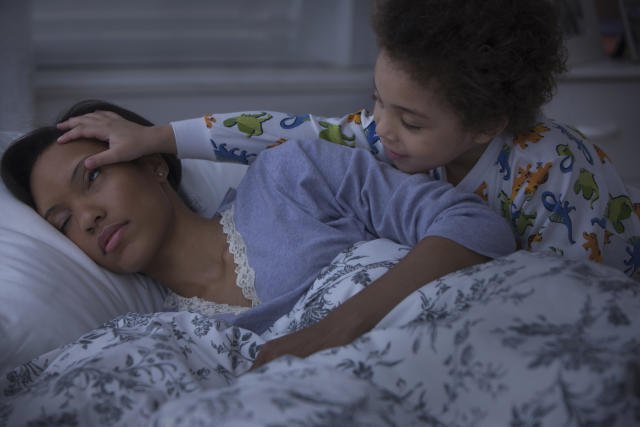Why Is My Kid Doing This? - The Sleep Episode
Sleep is a precious commodity, I cannot overstate this enough. Without proper sleep, no one functions properly, not you, not the kids in your care. Everybody has troubled sleep once in a while, but if the kiddo can't sleep or has nightmares, or sleepwalks, or wets the bed, no body in the house will be getting proper sleep.
Emotions feel bigger
Patience feels smaller
Little people may be restless and generally out of sorts, bigger little people may be cranky, easily frustrated, not interested in much. Big people may experience all of these things too. In short, without proper sleep your household will quickly become "The Hot Mess Express" Below I have listed the most common sleep disturbances for kids 8-12 and the ways you can help them.
Common sleep disturbances in children with a trauma background:
- Nightmares: Vivid, disturbing dreams related to the traumatic event that can wake the child up feeling scared or distressed.
- Sleep-onset insomnia: Difficulty falling asleep at bedtime.
- Sleep maintenance insomnia: Frequent awakenings during the night
- Sleep terrors: Sudden episodes of screaming or crying while still partially asleep, often with a panicked expression
- Short sleep duration: Not getting enough sleep overall
- Early morning awakening:** Waking up very early in the morning feeling anxious
How to help:
- Establish a consistent bedtime routine:
Create a relaxing routine including a warm bath, reading a calming story, and dim lighting to signal bedtime is approaching.
- Create a safe sleep environment:
Ensure the bedroom is dark, quiet, and at a comfortable temperature.
- Comforting bedtime practices:
Use a stuffed animal or security blanket, allow for cuddles if needed, and offer reassurance.
- Talk openly about feelings:
Encourage the child to talk about their day and any worries they might have before bed.
- Cognitive behavioral therapy (CBT):
A type of therapy that can help children learn coping strategies to manage anxiety and nightmares, including relaxation techniques and imagery rehearsal therapy.
- Relaxation techniques:
Teach deep breathing exercises, progressive muscle relaxation, or mindfulness practices
- Limit screen time before bed:
Avoid electronic devices like phones and tablets for at least an hour before bedtime.
- Professional support:
Consult a child psychologist or mental health professional if sleep disturbances are significantly impacting the child's daily functioning.
Important considerations:
- Severity of trauma:
The severity of the traumatic experience can significantly impact the severity of sleep disturbances.
- Individual needs:
Every child is different and may require personalized approaches to manage their sleep issues.
- Caregiver involvement:
Caregivers play a crucial role in providing support, consistency, and a safe environment for their child.
As always, if something is going on with your kin kiddo, a check in with their pediatrician is NEVER wrong. If your kiddo is having trouble sleeping, be strong Kin Kommunity, drink your perky beverage of choice and know that this too shall pass!
*Jeana Lavallee, Wearer of many hats, Kin Mom, Edie's Gigi, Autism mom*

